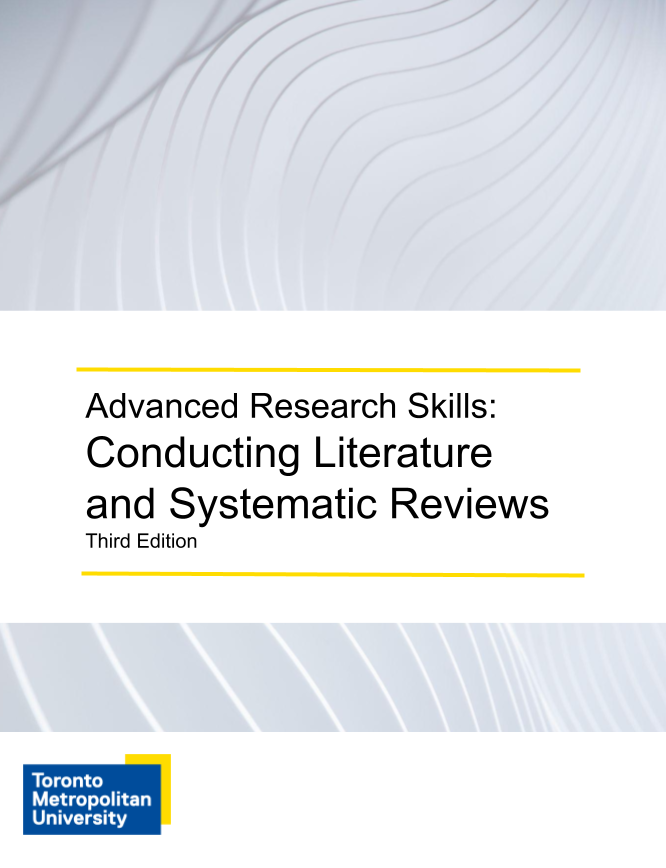Evidence synthesis refers to the method of identifying, selecting, and combining results from multiple studies to summarize existing literature on a particular topic. Libraries are important resources for evidence synthesis projects, which include literature reviews and systematic reviews.
TMU Libraries has a consultant model of support, where subject liaison librarians provide advice to literature or systematic review projects through an in-depth consultation, or a series of consultations. This model provides a time-limited level of support and advice, which could include:
- Recommendations of relevant databases and grey literature sources
- Advice on developing search strategies
- Demonstrations of database searching
- Guidance on the use of citation management tools or other softwares in the review process
TMU students, faculty, instructors and researchers are eligible to receive this level of support. Where extensive support has been provided, it is common to ask the librarian how they would like their contributions to be acknowledged. This would typically include a written acknowledgement of their contribution in the published version. Ask your librarian how they would like to be acknowledged.
Students and researchers can further their learning by completing this open course, Advanced Research Skills: Conducting Literature and Systematic Reviews, 3nd ed. (2024). Created by librarians from the Toronto Metropolitan University Libraries and the McMaster University Health Sciences Library, it is designed to help students and researchers advance their proficiency in conducting research for literature and systematic reviews. After taking the short course, students and researchers will understand how to conduct their review, how to execute appropriate searches, manage their results and demonstrate strategic reading skills.
Co-authorship
If substantial contributions are required from a librarian and meet the ICMJE criteria for authorship, co-authorship is required. Co-authorship differs from acknowledgement, as it involves a librarian voluntarily joining your team as a collaborator and being listed amongst the authors of your review. Co-authorship opportunities are only applicable to faculty-led research teams that are undertaking literature and systematic reviews with the goal of publication or other knowledge dissemination. Co-authorship opportunities do not apply to academic work for credit.
As a co-author, the librarian will be more hands-on and can:
- select databases and suggest grey literature resources,
- write the search strategy,
- translate searches to the syntax of all databases,
- perform searches and export them to software,
- write the portion of the methods section specific to searching.
Some tips for approaching co-authorship:
- Recognize whether or not a librarian needs to join the team early on in the process
- Note that a librarian joining your review project is a voluntary choice
- Approach a librarian as soon as possible, as they may not be able to join your team due to the time commitment
- Discuss the levels of support needed and requirements for the project with a librarian
